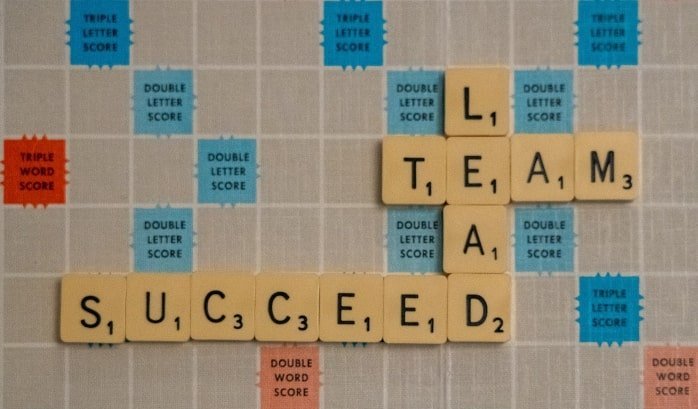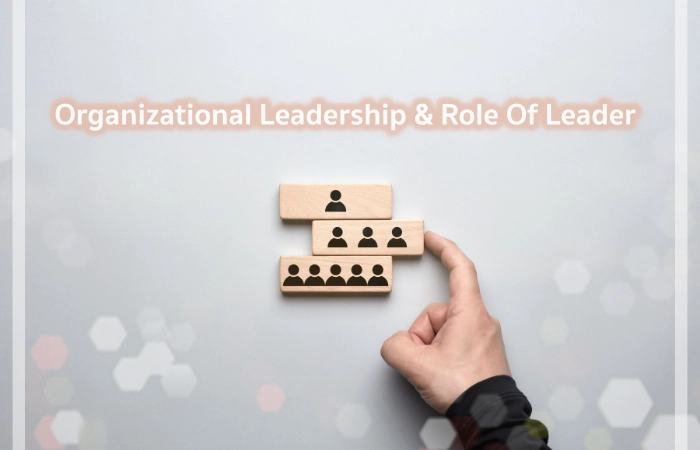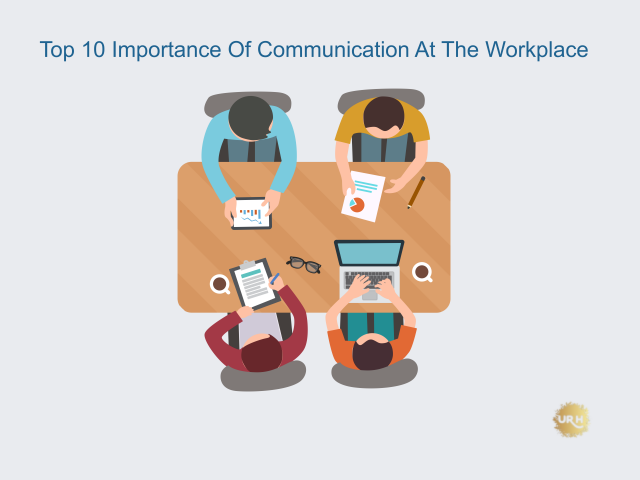Organizational Leadership & Role Of Leader – Top 5 Explained
There will be always a need for organizational leadership in companies to grow and evolve with time. And if you are looking for a role, skills, and qualities needed by a leader, you are at the right place.
Leadership is a combination of skill and qualities; skills can be acquired and qualities you have can be developed.
The good news is both can be developed further and put into work as organizational leadership.
In companies, organizational leaders can play various roles depending on the goals, time, and work involved.
Organizational Leadership
You will have to balance time and resources to optimise the effectiveness of both organizations needs and your leadership.
What do organizational leaders do?
Organizational leadership deals with various emotions of humans and behavior, thus greatly involving the human psychology, it also has a need for ever-evolving techniques/styles.
Organizations based on their goals and visions will have different needs for developing leadership skills and abilities that are relevant to the Organizations goals and core business.
For instance, a school will need different leadership skills and abilities development needs than a manufacturing organization.
Though certain leadership skills and abilities will be common across the industries, such as communication, Vision/Foresight, Domain Knowledge, and Empathy.
So, these skills, abilities, and qualities required for leadership clearly describe and distinguish the leaders and managers. While acting responsibly, a leader (he/she) should be able to guide the individuals under them give them a sense of direction.
Also help them to achieve predefined goals and you should have an ability to control the group of individuals. Very important, while doing so as a leader you should not dominate over others.
Organizational leaders (he/she) should be optimistic, empathetic and ready to understand the needs of the team members. As a leader You should understand, that individuals who are highly ambitious, have a high commitment level, a need to lead with self-confidence, and have good knowledge of their domain.
These types of individuals are generally honest and flexible and are more likely to succeed as organizational future leaders.
As a organizational leaders you should be able to communicate organizational mission, vision, and policies very clearly.
Also you need to encourage team morale, ensure efficient day-to-day operations; and help team members to grow professionally.

What is The Role Of A Leader
Below are the main 5 role of a leader that are required in an organization :
1. Role Of A Leader Are Required At All Levels-
You must have seen that people working in a company will need leadership functions at all levels of management.
- Top level of management, it is important to get company plan and policies in place.
- Middle level of management, it is required for the interpretation and supervision of programs framed by the top management.
- Bottom level of management, it is required for the execution of projects/tasks framed by the middle management.
You can exercise leadership through various methods and styles, by guidance, communication, and helping a team at the time of execution of plans.
2. Leaders Role Are Face Of The Organization-
As a leader category people in the company, i.e., a manager and above people, you are said to be the representative of the company as in your individual capacity.
You are given the responsibility to take certain decisions in the provided role on behalf of the company.
As a leader you should also have to represent the company at seminars and conferences. When you are communicating outside the company, leader’s role is to communicate the company’s services/vision to the outside public.
While you are communicating inside the company you are a representative of the department which you lead.
3. Leaders Role To Manage Organizational Goals And Personal Goals
People at the leadership level understand the company-level goals and vision with great clarity.
With this clarity, all the you as a leader are supposed to communicate the company-level goals to all the employees. Also plan and help them to convert these company goals into the personal goals of the employees.
Once the personal goals of the employees are defined then it is time to track them and assess the progress of individual goals and company goals.
Now to achieve these common goals as a leader you need to co-ordinate the efforts of people towards them.
As a leader when you influence the people then only you will be able to lead and guid people successfully.
4. Leaders Role To Solicits Support-
Leaders by the means of their personality, experience, and intelligence will be able to ask people to support common goals and have positive outcomes.
Leaders apart form other responsibilities also need to manage his/her subordinates and also get their co-operation. So, with his/her influence can get the full support of employees willingly to work and support.
5. Leaders Role TO Guide People As A Friend And Mentor
All leaders must be a multi-dimensional personality, he/she can be a friend with team members can share feelings, opinions, and desires/needs for growth.
As a leader you can be a mentor/philosopher who can guide the team/individuals utilizing his/her experience and intelligence when required.
Sometimes leaders can also play the role of a counselor, he/she can listen to the problems of the employees and try to solve them.
How To Become A Good Leader?
Becoming a great leader is a journey with a lot of learning and experiences. There are people who dedicated their entire careers to studying and identifying what it means to be a good leader (Napoleon Hill).
If you are thinking of getting into leadership I suggest starting with basic leadership skills and then work on discovering your personal management style.

1. Look For A Mentor
Learning from people with experience will always shorten your journey, as you will learn from their mistakes you will be able to avoid them in situations and save time.
With you experience and invigilance, a mentor will be able to help and guide you to identify the leadership methods that work best for you.
Mentors will be able to help you discover your relevant strengths and weaknesses. Then working together you can put a plan and goals to develop areas that need improvement.
You can find a mentor through previous jobs/contacts or from your professional network.
2. Do Your Research
There are many online and offline resources available which you can utilize to do your own research to find out relevant information required for your development plan. You can look for online articles, podcasts and books, you may also consider to join library nearby.
You can also study leaders from your domain/industry, this will be more relevant to understand the skills/qualities they possess and learn how they apply them.
3. Practice
For some skills/qualities to develop/master them practice is must, like active listening, public speaking and empathy. To convert them in to your good habits,
I suggest practice them on regular basis. Practicing will also give you chance to analyse what works for you and what needs more improvement.
4. Formal Training Course
Look at your current commitments and time in hand, you can either plan for online training courses or if time permits you can join the formal offline in-person training courses (organizational leadership degree / masters in organizational leadership).
By taking leadership course you will get more effective formal information about leadership, also you will get a chance to apply your learning during work.
Many organisations have formal leadership development programs, you might also ask your human resource department about the same.
5. What Is Your Leadership Styles
With the help of your mentor and looking at your personality you will be able to identify your leadership style.
It is not necessary to have on style of leadership, you can have mix of leadership styles and have you own personal leadership style.
6. Feedback A Effective Tool
Feedback is a very effective tool when used correctly, you can ask for feedback from your team, other people in your organisation with whom you interact. We you receive a feedback form team you understand what worked for them and use this information to improve your skills further.
Differences Between Leadership And Management
We will know these both the functions are very essential for any organisations success, but one need to understand it clearly, sometime you may feel it is overlapping in certain areas. Any organisations either it is over managed or under-led will have difficult time.
| Leadership | Management |
|---|---|
| Develop the organizational vision and communicate to employees | Put a structure around and delegates authority to perform work |
| Authority by his followers in company | Authority by position in company |
| Focus is on listening, teamwork, inspiring and motivating | Focus is on planning, staffing, directing and controlling |
| Follows their own instinct based on experience | Follows policies and procedure |
| Leadership is combination of standards followed and free hand | Management is more of standard way of doing things |
| Deals with the strategic dimension | Deals with the technical dimension |
| Work on the people aspect | Works on the technical aspects |
| leadership is proactive | management is reactive |
| Moe use of verbal communication | More use of written communication |
So we all understand now both these functions are important for individual as well as organizational success.
Tips On Effective Organizational Leadership
Lead Yourself First:
Only people who can lead himself/herself can successfully lead others.
As a leader you must be a committed person for learning and developing personal and professional needs and must be responsible person.
Motivate Yourself First:
As a leader you must be a optimist and motivated person, then only he can boost the morale of others.
Team First:
As a leader you should always support your team. Leaders should also need to realize that they are part of the organization as a whole and should not heart people and their feelings.

FAQ:
What is organizational leadership
Organizational leadership deals with various emotions of humans and behavior, thus greatly involving human psychology, it also has a need for ever-evolving techniques/styles.
How does leadership influence organizational culture?
Every leader will have it own style of leadership, and people in your organization will influenced by leadership and will follow them, so if you have leaders with a democratic/people-first leadership style, you will observe there will be motivated people in your organization and people will tend to work with the organization for longer period of time.
Final Words:
You can utilize leadership skills and qualities in every single walk of life, then why not pursue and develop them?
I suggest based on your current situation and demand of the time, you need pickup any of the above skills/qualities and start developing by learning and practicing.
I hop you had some good understanding of the subject now, do let us know your thoughts on leadership in comment section below.







